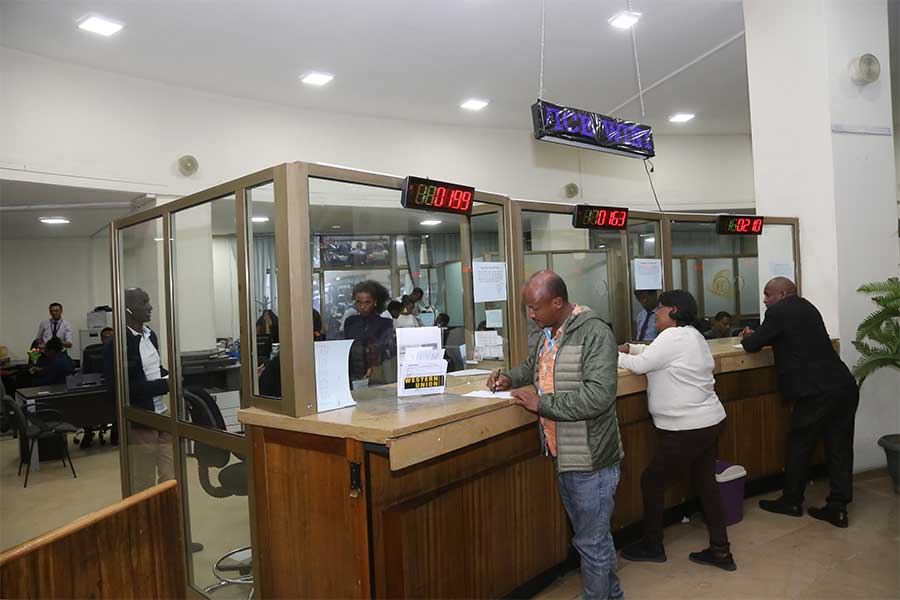
Agenda | Dec 14,2019
Demilew Ayenew, now 22, was born and raised in Were Illu Wereda, Southern Wello Zone, Amhara Regional State. A third child for his family, Demilew dropped out of school at an early stage.
His older brother was forced to quit high school due to a lack of money, and Demilew says that he feared it would be his fate if he continued his education.
With the hope of helping out his family and saving his young siblings from facing the same reality, Demilew moved to Addis Abeba looking for a job at age 16.
Demilew says he tried almost all low-paying jobs - from security guard to street vendor - but all could only provide him with a subsistence way of living.
However, one particular type of job that was common in the area he lived in, Qera, interested him the most. He saw a lot of people making a good living providing transport and delivery services using motorcycles.
After enrolling in an equb, a traditional saving scheme, he bought his first motorcycle for 30,000 Br four years ago. He started a business with a motorcycle by renting it to people that wanted to train on it.
The business was good enough that Demilew was able to upgrade his motorcycle two years ago and paid 75,000 Br for a new cycle.
He provided ride services for people who needed it and delivered goods for various shops. Demilew was making between 200 and 300 Br a day, which enabled him to send some money back home and help his younger siblings in the pursuit of their education.
Last year, he got married and was expecting to support his new family from his motorcycle business.
However, a June 19, 2019, announcement made by Deputy Mayor Takele Uma brought with it devastating news for him and other motorcycle owners in the capital.
Takele announced that using motorcycles was to be banned from the capital's streets starting July 7, 2019. The Deputy Mayor claimed that the ban was necessitated to curb rising crime and lawlessness committed by motorcycle drivers.
The ban will be in effect until a system is devised to control the cycles, according to the announcement.
The City Administration has recorded the use of motorcycles in acts of robbery and similar criminal activities, according to the Deputy Mayor, who briefed members of the media two weeks ago.
“In response to this surge," said Takele, "the city’s Police Commission in collaboration with the Federal Police Commission and the country’s intelligence institutions conducted a survey for a week and a half before making the decision."
Addis has around 45,000 motorcycles, of which only half of them have secured a license plate from the city's Transport Authority.
However, the ban spared few groups. It does not affect police officers, members of the military or other emergency service providers. Delivery services using motorcycles under bonafide organisations like the Post Office and embassies can operate but will be required to obtain permits to operate.
“The news of the ban was devastating,” said Demilew. “We were being blamed for the failure of the city’s legal protection system.”
A growing number of motorcycle owners have been engaging in providing delivery and transport services in the capital.
The ban was not only bad news for motorcycle owners and drivers but also for clients who hire them.
Ashenafi Begashaw, the owner of Ashenafi Garage, located in Hana Mariam in Nifas Silk District, is one of the regular customers of motorcycle delivery services. They bring him spare parts and submit documents to different insurance companies.
He has a list of six drivers and spends up to 600 Br a day for their services.
"Motorcycle delivery services have greatly increased our efficiency and save time," Ashenafi told Fortune. "They are fast, reliable and cheap."
For motorcycle retail shops, the ban was just as devastating. Motorcycle parts are imported from India and assembled here.
"The ban closes the already small window we had in the capital," said Seble Eshetu, a sales representative at Balaaji Manufacturing Plc located in Lancha, which assembles BMP motors from its plant in Modjo.
Five months ago the city stopped issuing 'Code 2' license plates for motorcycles, because the Administration could not track for what purpose they were being used.
The City’s Transport Authority argues that this did not stop motorcycles from acquiring 'Code 2' licenses plate from other regional states and coming to the city to operate.
Of 23,850 registered bikes in the city, 10,688 have 'Code 2' license plates, while 3,950 have number 'Code 3' plates.
According to the City Administration, though the crime analysis of the cycles was new, Addis has long been alarmed by the increasing number of motorcycles and their corresponding traffic violations.
Motorcycles in the capital are growing at a rate of 14pc annually, twice as much as the growth rate of vehicles in Addis Abeba, claim officials of the City Administration.
"The fact that they are relatively cheap and are not adequately regulated has resulted in the fast growth rate," said Solomon Kidane (PhD), economic cluster coordinator at the rank of deputy mayor.
He notes that the lack of proper regulation corresponds with the cycles causing more damage.
In the last fiscal year, traffic accidents involving motorcycles stood at 927, a 168pc increase from the previous fiscal year. In the same period traffic accidents involving automobiles grew by 35.6pc to 6,384.
Motorcycles are the most difficult vehicles to regulate, according to Thomas Eshetu(Sgt. Maj.), escort detail and regulation shift officer at Addis Abeba Traffic Police.
"Most motorcycle drivers do not obey driving regulations or stop when requested by traffic police," Thomas said.
Motorcycle drivers admit that they do not stop for traffic police but argue that it is the system that pushes them away.
“Motorcycle offenders are fined 2,000 Br irrespective of the gravity of the fault,” said Demilew. “Whether it’s for not wearing a helmet or for not stopping at a red light, it's always 2,000 Br."
And with the record keeping system, if they get caught with a second offence, they are fined 4,000 Br, and 6,000 Br for the third violation, according to Demilew.
Two weeks ago a motorcycle driver was shot and killed near Mekanisa after he refused to stop at a random police checkpoint. The City Administration argues that stopping lawless motorcycle drivers is necessary.
However, Solomon states that the ban is not a complete ban but rather sets up a new system that will regulate the cycles in the capital. For this effect, the city has prepared a new directive for the licensing permit and regulation of motorcycles.
The city has come up with a prerequisite that driving motorcycles in Addis requires a Global Positioning System (GPS), a system that determines exact locations.
Accordingly, people who want to use their cycles will only be allowed to do so if they install a GPS tracking system, which the city’s Traffic Management Agency can use to track their movement.
The City Administration believes that by tracking the motorcycles it can deter both criminal activities, as well as traffic violations related to the cycles.
The City Administration is in the process of setting up the system and is entering into contracts with GPS sales companies in Ethiopia.
The supply is open for any private firm that fulfils certain criteria and should guarantee that the data on the GPS won’t be compromised, according to Solomon.
Motorcycle owners like Demilew who want to provide transport service will be required to install a GPS system, obtain insurance, form a union, specify the kind of service they will be providing and then obtain permits to operate within a certain area.
The directive also sets tariffs, speed and capacity limits.
Motorcycle owners that are found breaking this directive will be fined up to 2,000 Br. Bikes that are not registered in Addis Abeba are expected to leave the city within the two weeks before the regulation becomes effective.
The law has little effect on organisations, as it does not force them to put GPS systems on their cycles and just requires them to make their motorcycles easily identifiable for the eye through colours, brands and logos.
"All our motorcycles are already branded and can easily be associated with the company," said Meron Getanhe, customer manager of Eshi Express, a delivery company that has six motorcycles under its fleet.
Some believe forcing drivers to place GPS trackers on motorcycles is an invasion of privacy.
The act of placing a GPS on every motorcycle for private use crosses citizens' economic and human rights, according to Wubshet Kassaw, a consultant attorney for half a decade.
"The City Administration, by tracing the motor vehicles, is creating a presumption that every motorcycle is used in crimes and is violating the right of a presumption of innocence," said Wubshet.
Under the criminal legal system in Ethiopia, you can only track someone if there is enough evidence that shows that the person might commit a crime, according to him.
However, the Authority argues that its requirement does not violate civil rights.
The act of driving a motorcycle is done in public, according to Solomon, adding that the city keeping track of information that is already out there does not invade privacy.
Some people support the new system like taxi driver Biniyam Abeni, who has witnessed the problem first hand.
Three weeks ago, Birkutawit Getahun, a businessperson was on her way to deposit 400,000 Br into a bank and was attacked by four men on two motorcycles around Awraris Hotel on Djibouti Street.
The bikers tried to snatch her money and drive off. The community stepped in and was able to catch one of the bikes and 300,000 Br. The four attackers got away with 100,000 Br on one bike.
The police were not able to trace the motorcycle as it had no plate, according to the eyewitness.
Biniyam strongly supports the new system as he thinks it will deter lawlessness of motorcycles, which he claims has been increasing.
Fekadu Gurmessa (PhD), an expert in the area of transport geography for more than two decades, supports the City’s Administration effort in providing a legal framework for motorbikes but notes that the move was much delayed.
"Such a ban is also not new and was in place during the military Dergueregime," said Fekadu.
He also believes that the city tracing the motors is something that can be compromised for the sake of public safety and is a lesser of two evils.
Installing a GPS does not bother Demilew. He just wants to get back out there and be able to work.
For the past week, even before the law became effective, he did not work, fearing an unpleasant encounter with traffic police.
For the additional requirements and for the directive involving their business and setting tariffs, he says he does not like it but has no choice but to comply.
However, he fears that such implementation might tangle him in the bureaucratic process and his wish of getting back on his motorcycle could be further delayed.
"No doubt the city has more process and complications to make difficult my simple way of living," said Demilew.
PUBLISHED ON
Jun 29,2019 [ VOL
20 , NO
1000]

Agenda | Dec 14,2019

Fortune News | Jun 04,2022
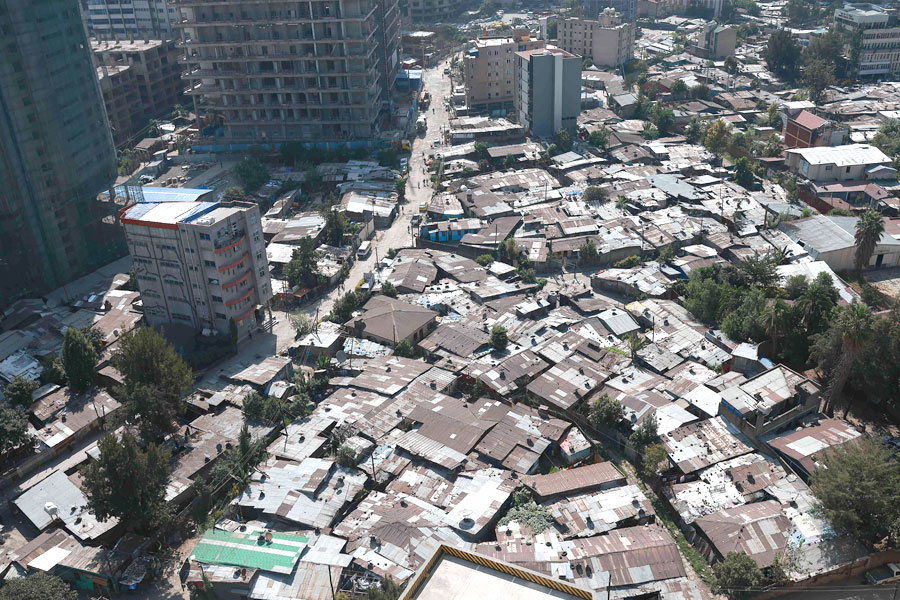
Agenda | Jun 15,2024
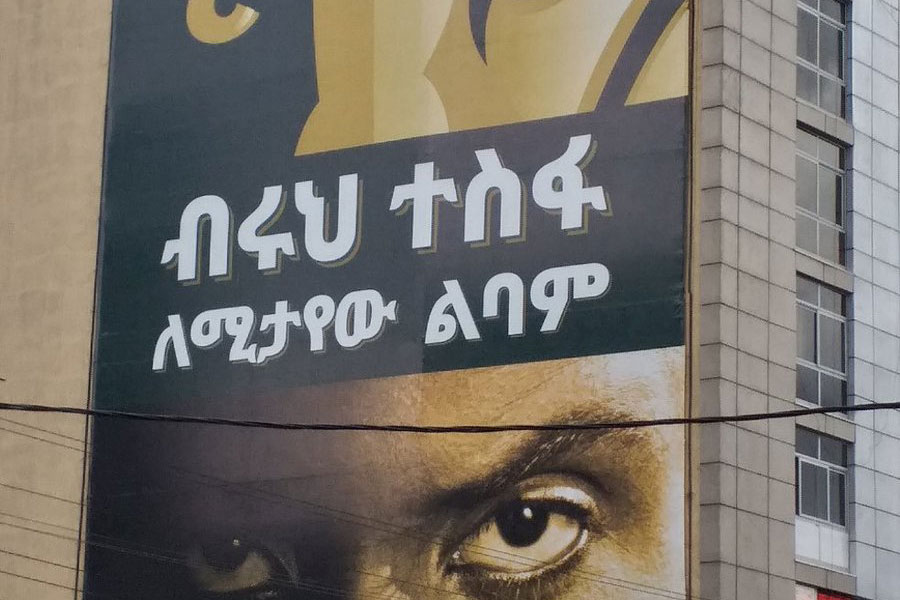
Fortune News | May 18,2019
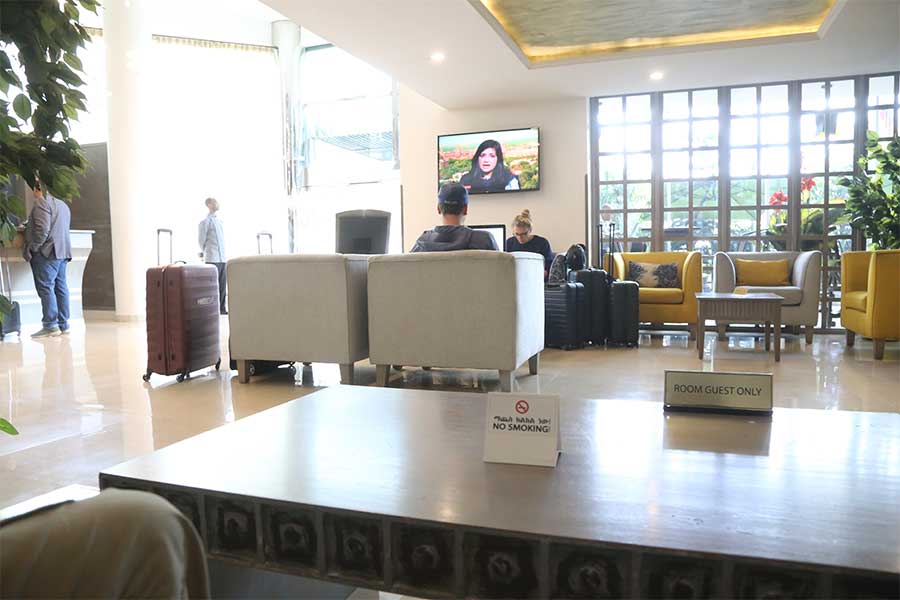
Agenda | Oct 05,2019
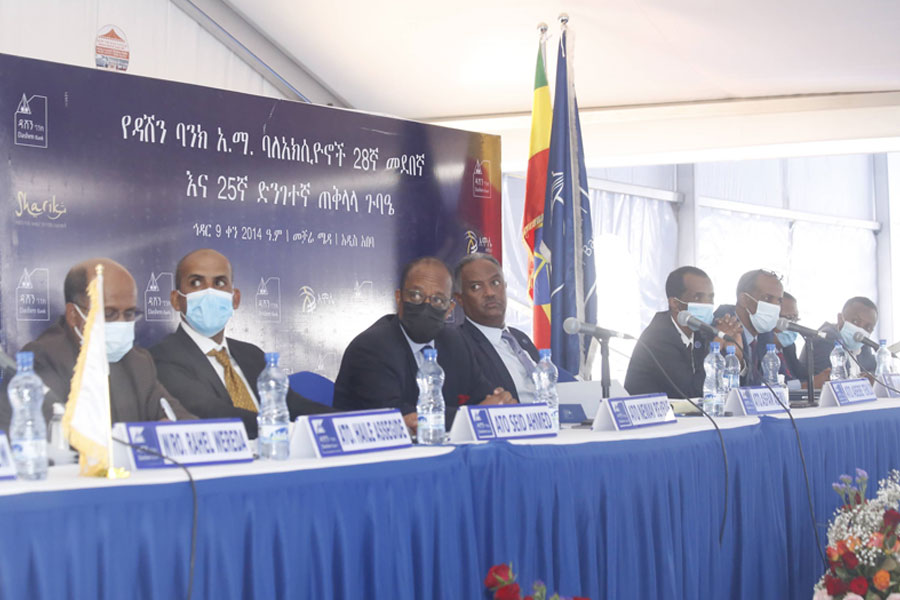
Fortune News | Dec 04,2021
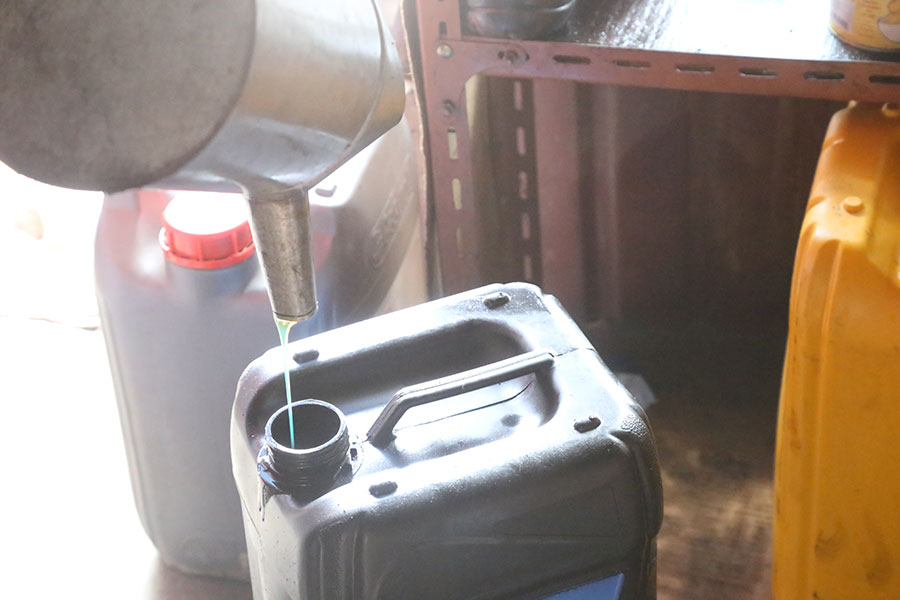
Featured | Jun 22,2019

Radar | Oct 12,2019

Fortune News | Jan 18,2020
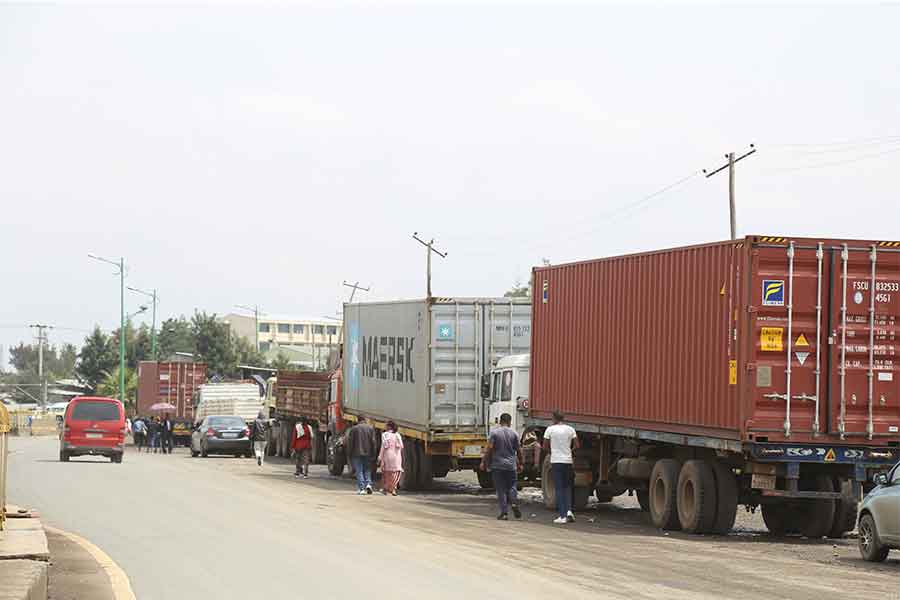
Fortune News | Jul 13,2019

Dec 22 , 2024 . By TIZITA SHEWAFERAW
Charged with transforming colossal state-owned enterprises into modern and competitiv...

Aug 18 , 2024 . By AKSAH ITALO
Although predictable Yonas Zerihun's job in the ride-hailing service is not immune to...

Jul 28 , 2024 . By TIZITA SHEWAFERAW
Unhabitual, perhaps too many, Samuel Gebreyohannes, 38, used to occasionally enjoy a couple of beers at breakfast. However, he recently swit...

Jul 13 , 2024 . By AKSAH ITALO
Investors who rely on tractors, trucks, and field vehicles for commuting, transporting commodities, and f...

Oct 25 , 2025
The regulatory machinery is on overdrive. In only two years, no fewer than 35 new pro...

Oct 18 , 2025
The political establishment, notably the ruling party and its top brass, has become p...

Oct 11 , 2025
Ladislas Farago, a roving Associated Press (AP) correspondent, arrived in Ethiopia in...

Oct 4 , 2025
Eyob Tekalegn (PhD) had been in the Governor's chair for only weeks when, on Septembe...